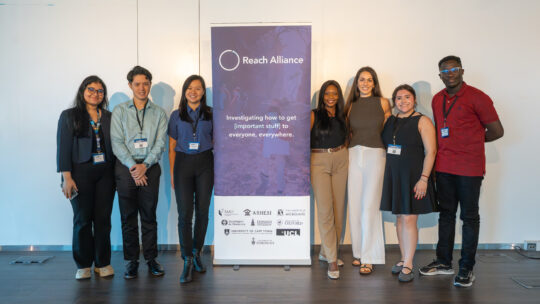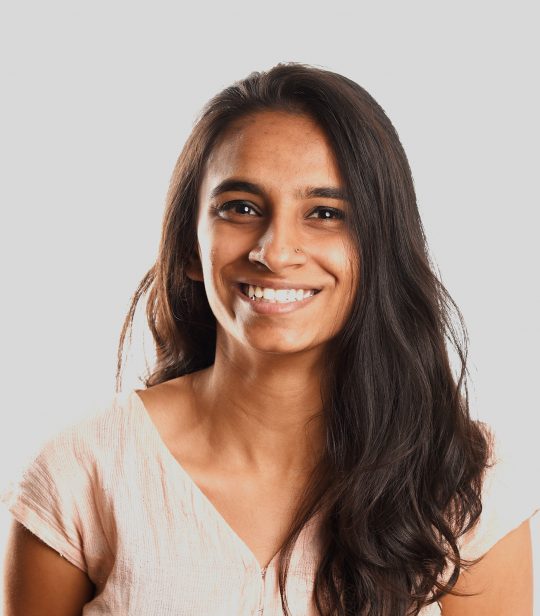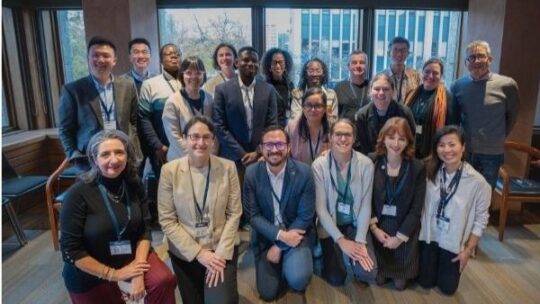News: Alumni, Latest News
Meet Giovanna Villalobos of Team Mexico 2020-21: Irregular Settlements in Mexico
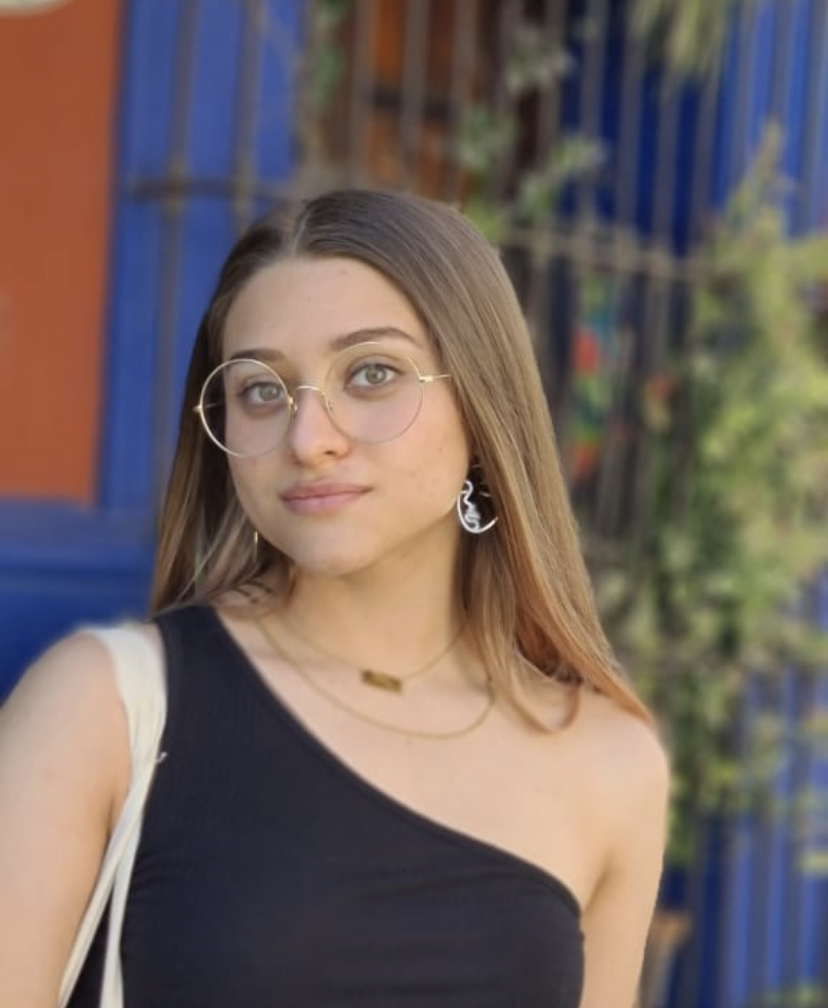
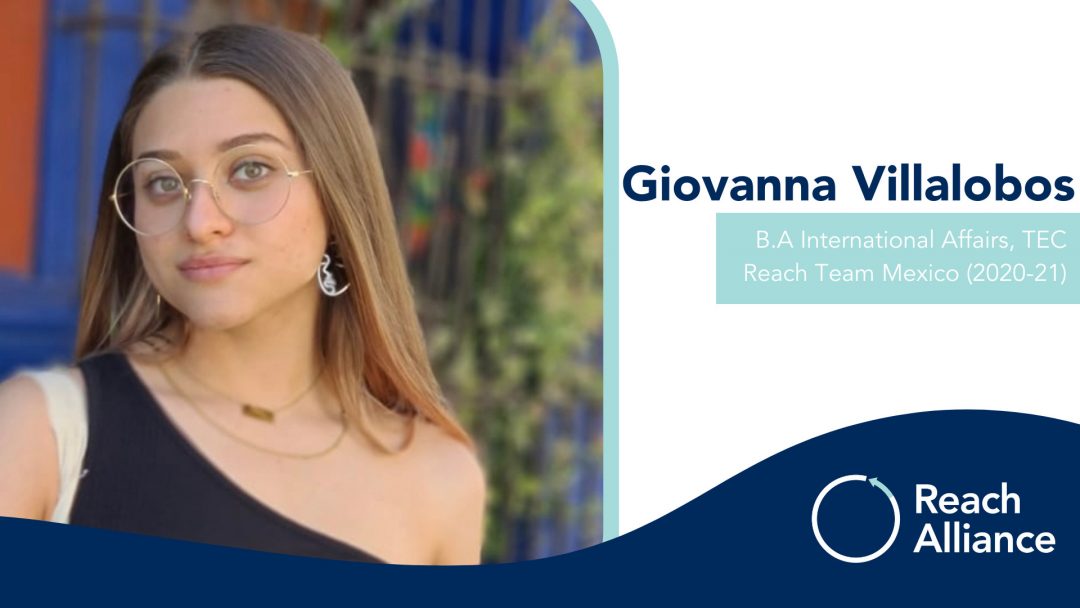
Meet Giovanna Villalobos (B.A International Affairs) from Team Irregular Settlements in Mexico
You are currently studying International Affairs at the University Tecnológico de Monterrey, can you tell us what go you interested in your program of study? Have you been involved in anything else since Reach you’d like to share?
I’ve always been a curious person and International Affairs was the perfect opportunity to look into many different things happening around that have an effect on our every day lives. A decision taken in one sector of a specific country can have an enormous impact on how an average citizen lives in the other side of the world. This field of study is also extremely humane which helped me further my interest regarding inequality. As a result of this interest, I’m also doing a MA in Political Economy for development in the University of Essex through a partnership with my university.
How did (or will) your experience in Reach inform your career path [e.g., your case study focused on Irregular Settlements in Mexico] – how (if at all) will this impact you seeking an opportunity after graduating?
Being a part of the case study for Reach allowed me to rediscover my interest in Academia but also helped me solve a personal dilemma. Although the creation of knowledge is indispensable, it is useless unless we use it to make a change, specially in regards to these problems. After Reach, I will continue working alongside the communities while looking for a job that not only works directly with communities and individuals but also actively participate sin the creation of public policy. I’m currently looking into some jobs in research centres that create public policy and facilitate their findings to raise awareness.
What takeaways or skills [personal or professional] did you gain from your Reach experience that you are applying to your work or study?
I’m a very passionate person which tends to be a double edged sword. But, as our team coach Jason pointed out: this is always a strength and the key is to learn to work right before the razor’s edge and never go over it. Ever since that meeting, I have been better able to identify when I’m too close and that if I don’t slow down I’ll get burn out. Professionally, Reach reach enabled us to gain so many skills but one that I was definitely not expecting was active listening. Not only did we learn to listen to the communities to understand what they were saying and not what we wanted to hear as researchers -which is a common and dangerous mistake-, but we also learned to listen to our team’ needs, expectations, concerns and ambitions along with those form our faculty mentors and Reach. We also learned how to listen to ourselves in order to express ourselves in the most constructive way in order to find a solution.
What is your fondest memory from your experience in Reach?
My fondest memory has to be when we found out that we were going to be the pilot team for Reach and our University. It was a rollercoaster of emotions where we knew how much responsibility we were accepting, but we were extremely hopeful and excited. By that point we had been working with the communities for almost a year, so knowing we would be able to communicate outside of the community, our state and even Mexico what was happening. This is accompanied by the moment we were all on a zoom call making the finishing touches to the research paper and the moment we pressed sent we knew we had finally made it. The world would finally see the hardships and resilience of communities that have been left aside in Mexico.
How has you experience been working working alongside students and faculty across the globe?
It’s been amazing. It’s highly inspiring working alongside people that not only love their jobs but that love helping you grow and learn. It’s a life-changing experience to share spaces, even if digital, with a community of people driven together by the desire to create a positive and lasting impact worldwide. Reach is an example of what can happen when the right people get together and create opportunities for young people to get involved and to use their knowledge to build something bigger than ourselves. Thank you, everyone, for your passion and your hard work. It’s a pleasure to work along dreamers who hope to make this world a little bit better.
What tips or words of encouragement would you give to someone who is interested in applying to the Reach initiative?
I deeply believe that anything one is passionate about is a risk worth taking. Reach is not only an opportunity worth pursuing but one worth being extremely passionate over. This is the opportunity to work alongside passionate, empathetic and like minded individuals who will not only seek to share your passion but they will give you the tools to land it into actual results. The Reach team not only prepares you professionally but also personally through their team coaching, which enables you to find balance while taking part of this amazing project.
Since Reach, how have you stayed connected with your fellow team members and/or researchers?
I think a positive aspect of being a part of Reach during the COVID-19 pandemic was that we were forced into looking at alternative ways of communication. I have stayed connected to researchers from other teams through Instagram and LinkedIn. With my team members it’s been easier; we were friends before Reach and after spending countless hours at each other’s apartments and coffee spots we became closer. Although we are in different time-zones and pursuing different project at the moment, we continue to text and stay in touch, celebrating each other’s achievements.
